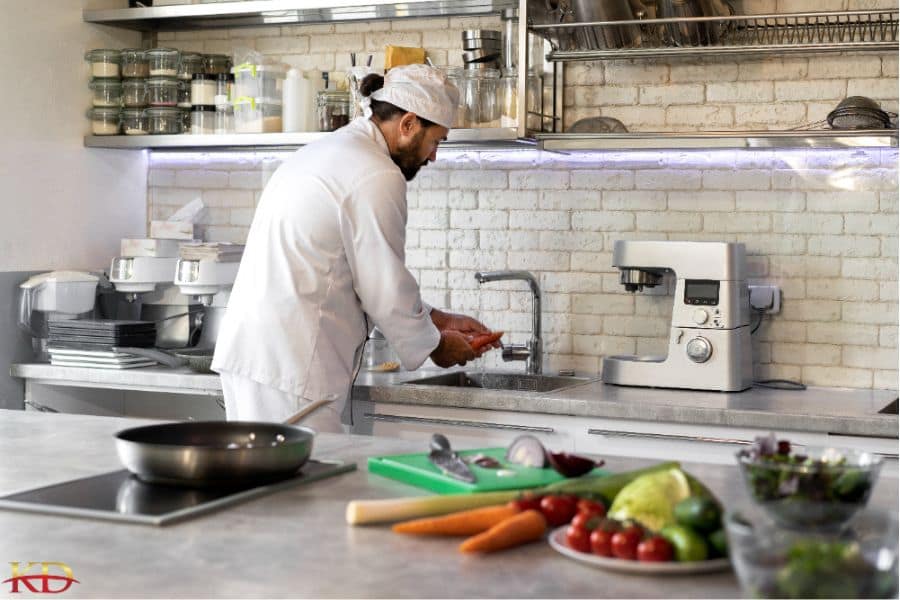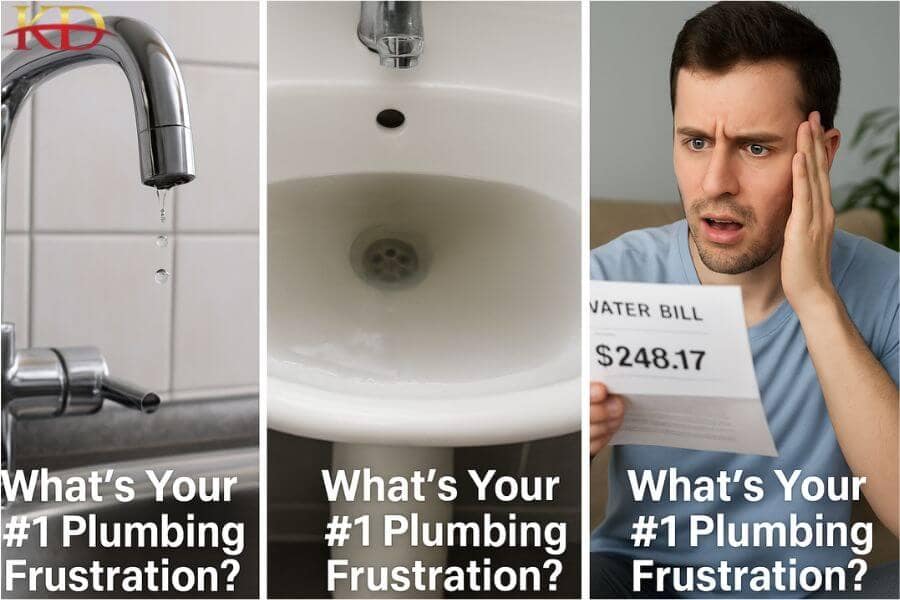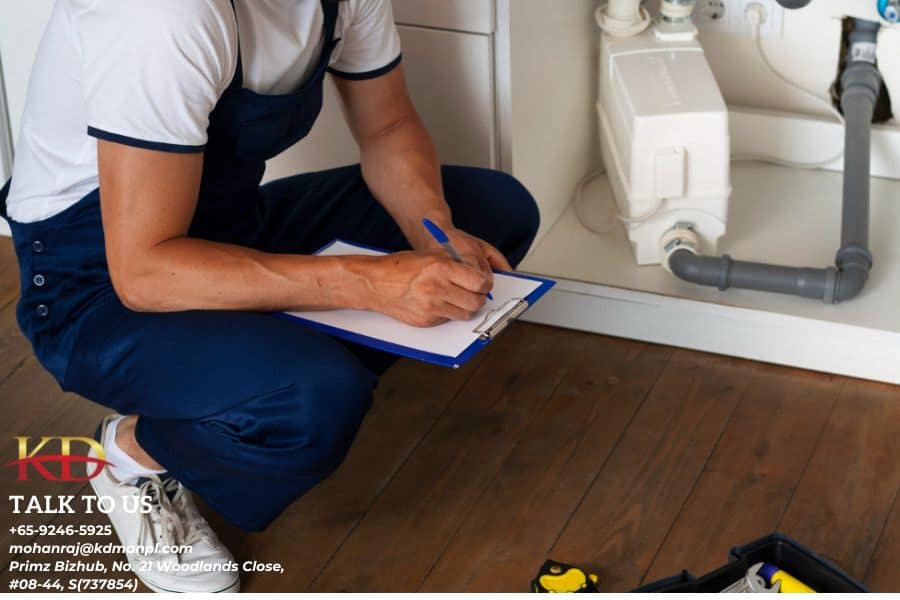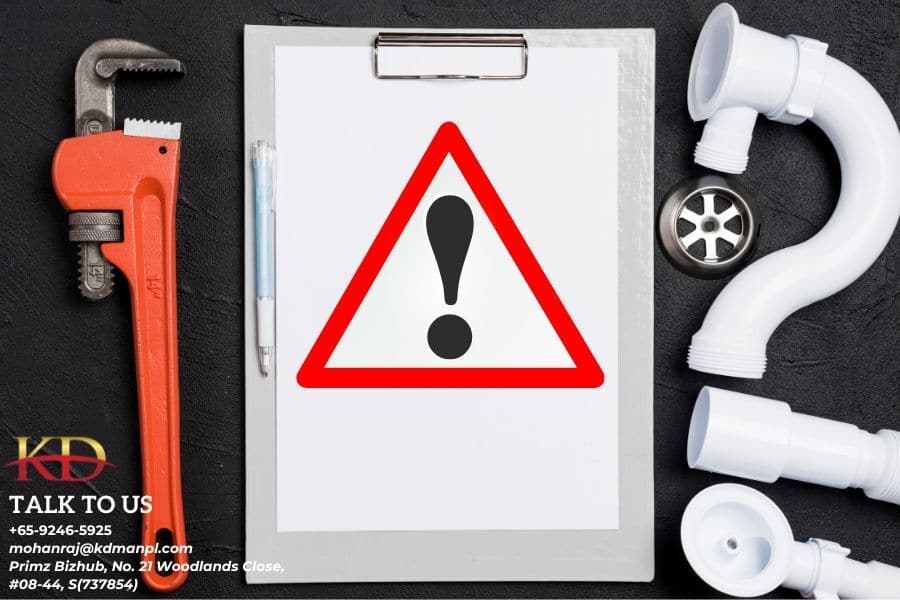In Singapore’s fast-paced F&B industry, commercial kitchens must maintain high hygiene and safety standards. However, one often-overlooked aspect that can lead to hefty fines, shutdowns, and food safety violations is poor plumbing maintenance.
From grease-clogged drains to backflow contamination, plumbing issues can disrupt operations and put your business at risk of non-compliance with the National Environment Agency (NEA) and Public Utilities Board (PUB) regulations.
Here are the biggest plumbing mistakes that commercial kitchens make—and how to avoid them.
1. 🚫 Neglecting Grease Trap Maintenance
🔹 Why It’s a Problem:
Commercial kitchens produce large amounts of grease, fats, and oils (FOG) that can clog drains and sewer systems. If improperly disposed of, they cause blockages, sewage backups, and pollution—leading to fines and business disruptions.
🔹 Singapore’s Regulations:
The NEA mandates that all food establishments must install grease traps and clean them regularly to prevent pollution. Failure to comply can result in fines or license suspension.
🔹 How to Prevent It:
✅ Install the right grease trap based on kitchen size and water usage.
✅ Schedule monthly cleaning with a licensed contractor to remove accumulated grease.
✅ Train kitchen staff to dispose of oils in separate waste containers instead of sinks.
💡 Did You Know? In Singapore, FOG-related plumbing failures are among the top causes of restaurant shutdowns!
2. 🚽 Improper Installation of Water-Connected Appliances
🔹 Why It’s a Problem:
Dishwashers, commercial sinks, ice machines, and beverage dispensers require proper plumbing connections to function safely. Poor installation can cause leaks, cross-contamination, or water pressure issues.
🔹 Singapore’s Regulations:
All commercial kitchens must follow PUB’s plumbing standards to ensure proper water connections. Unauthorized modifications or poor installation can lead to fines.
🔹 How to Prevent It:
✅ Always hire a licensed plumber for appliance installation.
✅ Ensure appliances comply with Singapore Water Efficiency Labeling Scheme (WELS) to reduce water wastage.
✅ Conduct routine compliance checks to avoid unexpected shutdowns.
🚨 Real-World Example:
A well-known food court in Singapore had to shut down temporarily after an improperly installed dishwasher leaked wastewater into food preparation areas, leading to an NEA hygiene violation.
3. 🚱 Failure to Maintain Backflow Preventers
🔹 Why It’s a Problem:
Backflow happens when dirty water flows backward into clean water lines due to sudden pressure changes. This can contaminate your kitchen’s drinking water supply with chemicals, bacteria, or wastewater.
🔹 Singapore’s Regulations:
PUB requires all food establishments to install backflow preventers and test them regularly. Failure to do so can result in penalties and forced repairs.
🔹 How to Prevent It:
✅ Install PUB-approved backflow preventers on all water outlets.
✅ Test backflow devices annually as part of regular maintenance.
✅ Fix damaged preventers immediately to avoid water contamination risks.
💡 Pro Tip: Backflow incidents often go undetected until health authorities step in. Regular testing keeps your kitchen safe and compliant.
4. 💧 Ignoring Leaky Faucets & Pipes
🔹 Why It’s a Problem:
Leaks may seem minor, but over time, they increase water bills, promote mold growth, and cause water damage to kitchen walls and floors.
🔹 How to Prevent It:
✅ Inspect plumbing fixtures regularly for drips and water stains.
✅ Fix leaks immediately to avoid escalation.
✅ Upgrade to WELS-rated water-efficient fixtures to reduce unnecessary water wastage.
🚨 Hidden Costs of Leaks:
A single dripping faucet can waste over 300 liters of water per month, increasing operational costs and contributing to Singapore’s water conservation issues.
5. 🛑 Skipping Regular Drain Cleaning
🔹 Why It’s a Problem:
Commercial kitchens deal with heavy food waste, leading to clogged pipes, slow drainage, and even sewage backups. Blocked drains can force you to halt kitchen operations—resulting in revenue loss.
🔹 Singapore’s Regulations:
Under the Environmental Public Health Act, all food establishments must maintain proper drainage systems to prevent health hazards.
🔹 How to Prevent It:
✅ Use sink strainers to catch food waste.
✅ Schedule monthly drain cleaning to remove buildup before it causes blockages.
✅ Avoid using harsh chemicals—opt for eco-friendly drain cleaners.
💡 Common Plumbing Violations That Result in Fines:
❌ Drains clogged with food waste
❌ Failure to maintain proper waste disposal systems
❌ Unapproved drain modifications
What Happens If You Ignore These Plumbing Issues?
🚨 Hefty Fines & License Suspension
The NEA and PUB conduct regular inspections—plumbing violations can cost businesses thousands in fines or even temporary closure.
💸 Higher Water Bills
Leaky pipes and inefficient fixtures lead to significant water waste, increasing operational costs.
🛑 Health Hazards & Food Safety Risks
Contaminated water, blocked drains, and mold from leaks can lead to food poisoning outbreaks, damaging your restaurant’s reputation.
🚀 Lost Business Due to Shutdowns
Emergency plumbing repairs can halt kitchen operations for hours or even days, leading to lost revenue and customer trust.
How to Keep Your Commercial Kitchen Compliant & Efficient
✔ Invest in Licensed Plumbing Services – Hire PUB-certified plumbers for installations, inspections, and repairs.
✔ Train Your Staff – Ensure employees understand proper grease disposal, water-saving practices, and drain maintenance.
✔ Schedule Preventive Maintenance – Monthly checks prevent small issues from turning into costly emergencies.
✔ Stay Updated with NEA & PUB Regulations – Regularly check government guidelines to ensure compliance.
Final Takeaway: Prevention Saves Money & Keeps Your Kitchen Running!
Don’t wait for a plumbing disaster to cost you thousands in fines or force a shutdown. By proactively maintaining your kitchen’s plumbing system, you’ll:
💰 Save money on repairs and water bills
✅ Stay compliant with Singapore’s strict regulations
🚀 Avoid operational disruptions and maintain a top-tier reputation
👉 Is your commercial kitchen due for a plumbing check-up? Contact us today!





Leave a Reply